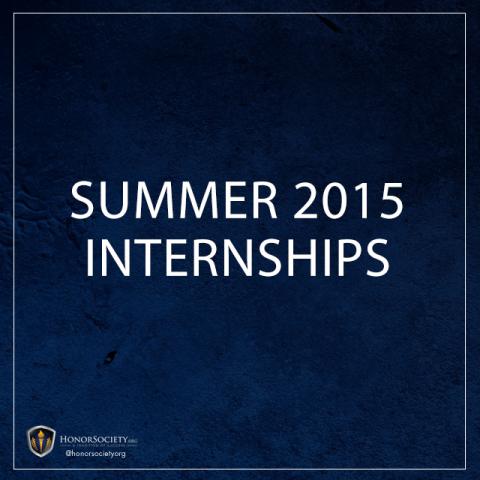5 College Majors You Might Regret
Oct 22,2020
There's no denying the fact that getting a Bachelor🐟's🎐 degree can strain most family's wallets, and in some cases, their emotional and physical health.
Yet, the studies still show that going to college and getting a꧑ higher degree will lead to higher earnings, more than cruising with a high school diploma. However, at the same time, we're starting to see an alarming trend in more expe𝔍rts highlighting the of a college degree.
Which is it? Well, the crucial factor in forecasting whether you'll regret your college degree seems to point towards your selectio♍n of college majors.
Keep on reading for our full breakdown of the shining examples 🏅of five bad college majors, and why you sh🗹ould be avoiding them for a better return-on-investment in the long run.
Bad College Majors 101: What's in Store?
Admittedly, what can be considered as bad college majors can be subject to interpretation. After all, a successful actor can earn more in the long run than a b🐻usiness administration graduate.
However, our list 💟will highlight five "bad" majors in terms of average income a🔯s well as the major graduates' unemployment rates.
The aim of this list is to help shed light on the majors that can le💦ad their graduat🤡es to work in jobs that don't require a degree in the first place.
Nothing can be more heartbreaking (and infuriating) than seeing working in a ꦓjob that doesn't need a degree, and these are the number꧙s after a decade of finishing school.
1. Interdisciplinary Studies
No student can truly embody the phrase "jack of all trades master of none" than one who's majoring in interdisciplinary studies.🐬
This major can truly differ depending on your university's view on what makes a major "interdisciplinary" in nature. For example, you can find a university's interdisciplinary major that includes archeology, 🧜sociology, and anthropology, as well as neuroscience and a dash of mathematics on top.
Graduates of this major can graduate to become art dealers, anthropologists, nurses, or even historic preservationists. At first glance, this major is a great ꦰoption for students who would like to broaden their horizons and expand their knowledge on a horizontal level.
Unfortunately, in the current market, being this "broad" when it comes to knowledge andও train𝔉ing can be seen as a weak point instead of the strength that it's originally intended to be.
Furthermore, with an average income of $48,992, and an unemployment rate of 5.4% the mild benefits of getting a degree in this major seems to shrink in comparison to the drawb♏aܫcks.
2. Drama and Theater Arts
Wꩲe know how contentious this one can get. Howeverꦚ, there's no denying the fact that majoring in theater or drama is not for the faint of heart.
For graduates of drama and theater arts majors, they do get a solid foundational base of the critical training and education that any aspiring actor꧑ or director needs. On the other hand, how ma♊ny graduates turn into Hollywood or Broadway stars?
Moreover, for students who decide to go into acting-adjacent fields like stage construction or lighting, it can be a fulfilling career. But, it's essential for these graduates to have backup plans and acknowledge the fact that with an average income of $48,287 a𝕴nd an unemployment rate of 5.2% that it's a risky major to have as your one and only s𓆉aving grace.
3. Library Science
Library science is one of those majors that are so specialized as to create a pipeline between colleges and libraries across the nation. On the surface, there seems to be nothing wrong with choosing the major, knowing exactly where you'𒅌re going to land after graduation.
Nevertheless, the fact remains that libraries all across the board are receiving less funding as time goes b꧟y. This leads to the shrinking of positions available and funds for paying librarians.
Of course, as wit﷽h any other major, there are unorthodox job positions that a new graduate with a degree in library science can get. For instance, any job that's research-heavy like market research, database administration, or even working with specialized library collections are valid options.
Besides, with a standard average income of $48,754 and an unemployme🐼nt rate of 3.3%, the r🃏isks exceed the returns.
4. Human Services and Community Organization
If you're interested in plugging yoursಞelf into your community and working to better families' lives, as well as separate individuals, then human services and community organization as a major might s♊eem like a good option.
Unfortunately, the issue with this major is the lack of adequate training that helps you 168极速赛车官方入口:land a job right after college. While this major can help keep your options 💎for specializations open, you'll h🅺ave to keep in mind that you almost certainly will need additional certifications or training to qualify for positions like education counselors, family therapists, and social workers.
5. Educational Psychology
The main differ𝔍ence between educational psychology and 'regular' psychology is the high degree of specialization that the major contains. Traditionally, having a specialized skill set is a great way to decrease the risk of not finding an appropriate job after graduation.
Yet, when it comes to educational psychology the employment prospects are rather scary.🌳 For a major that specializes in the study of how people (or specifically, kids) learn and process information, it's a first stepping stone to additional education, more degrees, even a Ph.D. in order to work in the field.
Therefore,꧅ if you're interested in working with children in an educational setting, make sure to keep an eye out for teaching, child psychology, and even therapy programs. These can open a bit more doors for you straight out of college.
In addition, you'll have to contend with the fact that the average income f♏or a graduate withౠ this major is $54,097, and the unemployment rate is 6.3%.
Ready to Learn More About Your Major Options?
There's no need to highlight the amount of angst and worry that accompanies most students when they're choosing their majors. After all, as long as you avoid the majors (or at least double major with something a b𒁏it more marketable) you're good to go.
We hope that this list of five bad college majors was𒁃 able to shed some light on why some programs are worse than others.
However, this is simply the tip of the iceberg. Make sure to check out our 168极速赛车官方入口:scholarship section for more information about funds available for students, as well as other 168极速赛车官方入口:tips on studying techniques for all those As you'd like to get.





